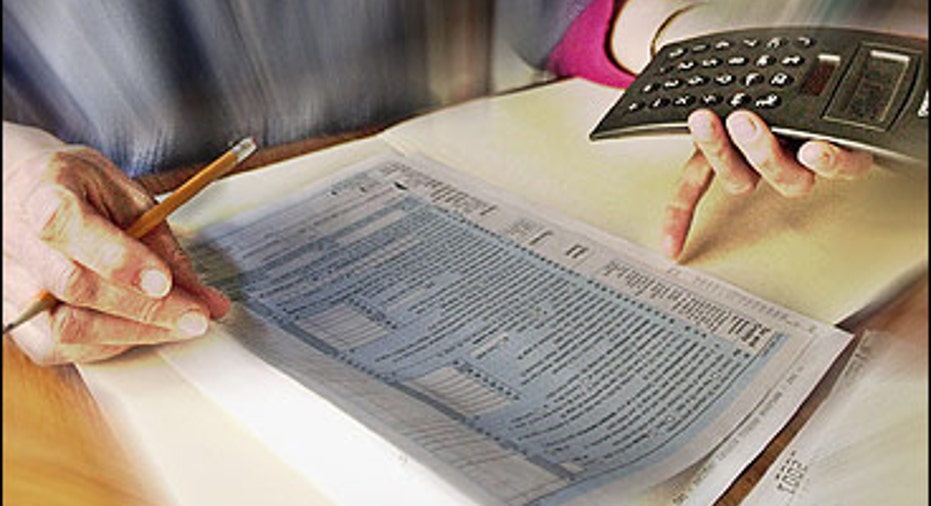Getting the Jump on April 15 - What to Do When Tax Forms Start Arriving

Have you ever visited anyone on the night of April 14th and found them in a catatonic state at their kitchen table, with a shoebox full of random receipts and a blank tax form in front of them (and perhaps a half-empty bottle of vodka)? Worse yet, have you ever been that person?
At that point, nobody can help that taxpayer, whether it is you or some other helpless soul. Preparation and organization are the keys to keeping the kitchen table clear on April 14th (as well as keeping the liquor cabinet well stocked). Start by establishing an organization system for all receipts and relevant tax paperwork, and then maintain it throughout the year.
The classic stuffed shoebox will work, but you will save yourself a lot of trouble in April if you further organize the receipts during the year into categories. For example, if you purchased a home in the past year, keep all of your relevant mortgage documents in one location. Keep all medically related receipts in one spot so that you can determine if you have enough medical expenses to itemize your deductions.
Next, you must make sure that you receive all the necessary forms regarding your income. Anything that contributes to your income or adjusts your taxable income requires some type of form or receipt. The primary forms are:
- W-2 s – You must receive a W-2 from anyone you worked for as a direct employee during the year. W-2s contain all information on salaries, wages, tips and bonuses, as well as a record of all taxes withheld from your check. You will receive a W-2G to document any significant legal gambling winnings (do not expect one to cover the office Super Bowl pool).
- 1098s – 1098 forms relate to deductible interest expenses. There are multiple varieties, including mortgage interest (1098), tuition/student loan interest (1098-T and –E), and charitable vehicle contributions (1098-C).
- 1099s – 1099 forms document income from independent contract work and other sources of income from which taxes are not withheld. Everyone for whom you have worked as an independent contractor owes you a 1099 form. Remember that you must pay quarterly self-employment taxes when working as an independent contractor.
Many 1099 forms are matched to specific income sources, including retirement plans and pensions (1099-R), unemployment compensation and state/local tax refunds (1099-G), interest income (1099-INT), and real estate sales (1099-S). The IRS has a full list of 1099 forms on their website.
- Schedule K-1s – K-1s cover pass-through situations such as partnerships, S-corporations, LLCs, or incomes from trusts and estates. Taxes are passed through to the owners in these cases.
Supplement these records with anything from the Giant Shoebox O’ Receipts that may relate to reportable cash income (such as miscellaneous side jobs or sales of personal goods) and potentially deductible expenses.
You may decide not to itemize, but at least you have the documentation ready if you do – and remember that some expenses such as qualified moving expenses and educator expenses are above-the-line deductions that you can take whether or not you itemize. Check the Form 1040 and Schedule A instructions for possible deductions.
You will also need a copy of last year’s tax form for reference. We hope that the combined stains of vodka and tears have not rendered it unreadable.
Issuers are not obligated to keep your current address – it is on you to make sure employers know where to send your tax documents. If you have not received any expected forms by the end of January, follow up with the issuing employer, group or agency.
Do not be caught at your kitchen table on April 14th researching fines and debating the merits of fleeing to a foreign country. Stay organized throughout the year and start on your taxes as soon as you receive all the necessary forms. If you end up owing money, it is fine to wait until the last minute to send the form in – but do not delay filling out your paperwork based on the assumption that you will get no refund.
Vodka is optional, but if you do imbibe, we suggest waiting until after the forms are completed and you have driven back from the post office.
More From Moneytips.comTax Day Last Minute FilingPreparing For Your Annual Tax MeetingWhat to Do If You Are Audited



















